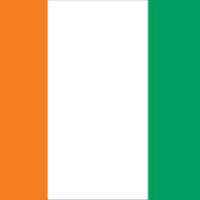Ivory Coast has abundant natural resources that enable it to achieve economic growth and a competitive market role (Jasińska & Guei, 2022). Among natural resources, the most valuable ones are agricultural; in particular, they focus on such products as cotton, cocoa, coffee, and rubber (Sagna et al., 2021). Cotton remains a vital input in the textile and apparel industries since it forms the main raw material for products produced within the country and exported to other countries.
Another important component of Côte d’Ivoire’s natural resource profile is its mineral richness. Côte d’Ivoire has rich mineral resources like gold, diamond, and manganese that do not as much influence the textile industry (Zonkouan et al., 2022). Exploration for oil and natural gas supports its energy industry, and both industrial and artisanal mining are essential for both domestic and foreign markets. For example, Foreign investment and the export and production of cocoa drove economic growth that led Cote d’Ivoire to become one of the most prosperous states in West Africa (CIA, 2024). However, the environmental consequences of these operations include soil degradation, deforestation, and the possibility of oil spills along the shoreline. The government is developing plans to strike a balance between resource exploitation and environmentally friendly activities with the help of agencies like the UNEP, which created an independent scientific audit. The objective of the audit, which was requested by the Government of Côte d’Ivoire, was to determine if these sites continued to pose risks to the environment or to public health (UNEP, 2024). With this plan in place, the country will flourish with environmental improvement as well as the growth in the rich mineral industry within Côte d’Ivoire.

Figure 4 : Multinational mining company Endeavour Mining has poured first gold from its Lafigué mine in Ivory Coast



